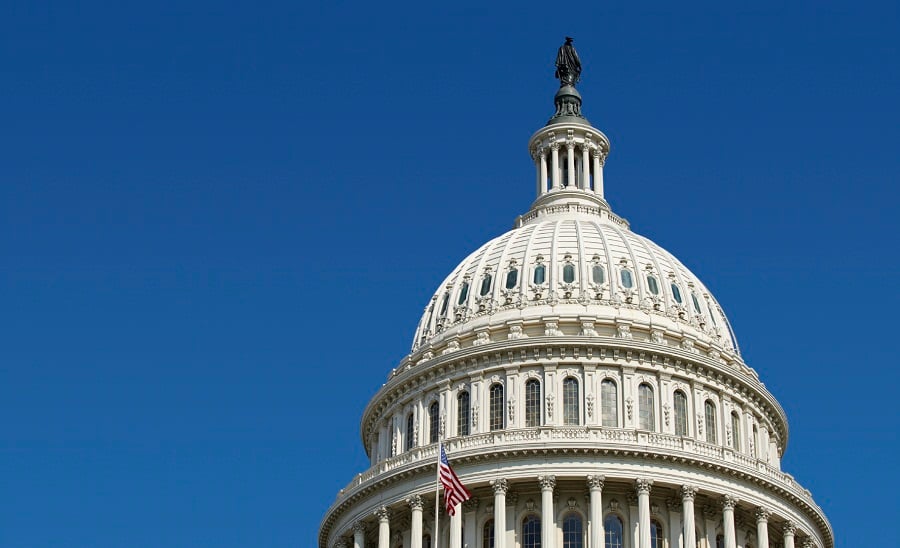

Senators and industry groups spelled out their wish lists for retirement reforms for the current Congress today, pointing to mandatory coverage, student loan provisions and emergency savings.
In a hearing before the Senate Finance Committee, witnesses urged lawmakers to include those changes in whatever legislative package materializes, such as the SECURE 2.0 bills in the House and Senate.
Committee Chairman Ron Wyden, D-Ore., also sharply criticized the fact that a small number of ultra-wealthy Americans have been able to accumulate millions or billions of dollars in individual retirement accounts, citing newly released data from the Joint Committee on Taxation. Between 2011 and 2019, the number of IRAs with balances of $5 million or more tripled, to represent about 25,000 accounts. But a few IRAs represent an outsize proportion of the assets, with 497 taxpayers having accounts with an average of $150 million each, according to the report.
That issue garnered attention recently after a report that PayPal founder Peter Thiel had amassed $5 billion in his IRA, an aberration that was possible because shares that he owned initially had an extremely low valuation.
“I want economic policies that give everybody in America the change to get ahead — not one that promotes the retirement haves and have-nots,” Wyden said.
The U.S. private-sector retirement system must be overhauled to account for the fact that people are working longer, changing jobs much more frequently and increasingly are self-employed gig workers, noted Sen. Mike Crapo, R-Idaho.
Requirements for mandatory retirement plan coverage at the federal level, along with automatic enrollment, would dramatically reduce the percentage of workers who do not have access to plans, said Brian Graff, CEO of the American Retirement Association. The coverage gap is disproportionately high for Black and LatinX workers, he noted.
“These ideas have proven to work. We just want to scale them at a national level,” Graff said.
Only about half of all workers have access to an employer-sponsored retirement plan, and that figure hasn't budged for about four decades, said David Certner, legislative counsel and policy director for AARP.
Expanding coverage, including through state-sponsored auto IRA programs and potentially a federal one would help, he said.
“Automatic features only help workers who have a retirement plan,” Certner said.
Wyden, along with six other Senate Democrats, last week introduced a bill that would turn the existing nonrefundable saver’s credit into a government matching contribution of as much as $1,000 for low- and middle-income 401(k) participants and IRA owners. That would help encourage people to save, given the strong incentives that matching contributions have been shown to have in defined-contribution plan participation rates, witnesses said. That bill would also provide a bonus credit of as much as $5,000 in additional matching contributions from the government for the first $10,000 contributed over five years beginning in 2022.
Another strategy for getting workers to participate, particularly younger employees, is to treat student loan payments as elective deferrals for the sake of receiving an employer match in 401(k) plans.
“Employers do not want their workers to miss out on matching contributions because of their student loan debt,” said Aliya Robinson, senior vice president of retirement and compensation policy at the ERISA Industry Committee.
That group also supports legislation proposed by Sens. James Lankford, R-Okla., and Michael Bennet, D-Colo., to allow workers to withdraw up to $1,000 penalty-free, annually, from their 401(k)s or IRAs. That provision would simultaneously help increase emergency savings and encourage workers to participate in 401(k)s, knowing that they could access some of their funds in emergencies, proponents said. Further, it saves employers the trouble of having to establish emergency savings accounts in addition to their 401(k)s.
Robinson also asked legislators to consider changing the definition of “highly compensated employee” for retirement plans, which currently encompasses those who earn $130,000 or more per year. That classification can reduce how much high-earning employees can contribute to their 401(k). An alternative, such as the top 10% of earners at a company, would be more appropriate, Robinson said.
“This limits their ability to save, especially at the early stages of their careers,” she said.
Because people change jobs more frequently than in the past, it has become common for people to lose track of small retirement accounts they have with former employers.
Several members of Congress have been trying to address that for years through bills to create a national lost-and-found registry that would easily help people find their old 401(k)s. Such a provision is included in multiple bills in the current Congress.
A related way of addressing that is automatic portability, where a participant’s account balance would go with them to their next job.
“Employers spend a lot of time and effort voluntarily setting up benefit plans,” Robinson said. “Finding these [missing] participants is a large part of what they consider important.”

New chief executive Rich Steinmeier replaced Dan Arnold on October 1.

The global firm is navigating a crisis of confidence as an SEC and DOJ probe into its Western Asset Management business sparked a historic $37B exodus.

Beyond returns, asset managers have to elevate their relationship with digital applications and a multichannel strategy, says JD Power.

New survey finds varied levels of loyalty to advisors by generation.

Busy day for results, key data give markets concerns.
A great man died recently, but this did not make headlines. In fact, it barely even made the news. Maybe it’s because many have already mourned the departure of his greatest legacy: the 60/40 portfolio.
Discover the award-winning strategies behind Destiny Wealth Partners' client-centric approach.
